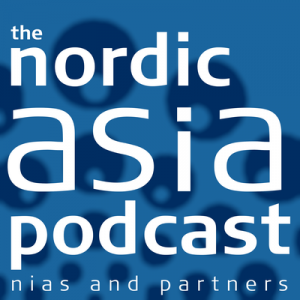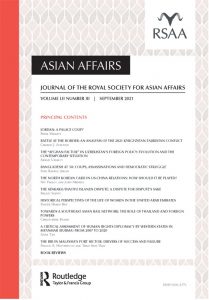 Several high-profile cases of sexual harassment and assault have helped the #MeToo movement in China continue to make impacts on a society that is highly controlled and surveilled. Most recently, tennis star Peng Shuai’s saga has accused former top Chinese Communist Party leader, Zhang Gaoli of sexual assault. Although Peng did not say that she is part of the #MeToo movement, her speaking out has given fresh impetus to the campaign.
Several high-profile cases of sexual harassment and assault have helped the #MeToo movement in China continue to make impacts on a society that is highly controlled and surveilled. Most recently, tennis star Peng Shuai’s saga has accused former top Chinese Communist Party leader, Zhang Gaoli of sexual assault. Although Peng did not say that she is part of the #MeToo movement, her speaking out has given fresh impetus to the campaign.
Joining Julie Yu-Wen Chen to talk about about the #MeToo movement in China is Dusica Ristivojević, Kone Foundation Bold Initiatives Senior Researcher at the University of Helsinki. Dušica works in the areas of interdisciplinary Chinese studies, media studies, and international relations. Recently, she published a co-authored journal article on the #MeToo movement in China. See Jing Xiong and Dušica Ristivojević (2021) #MeToo in China: How do the Voiceless Rise Up in an Authoritarian State? in Politics & Gender.
You can listen to the podcast here.
The Nordic Asia Podcast is a collaboration sharing expertise on Asia across the Nordic region, brought to you by the Nordic Institute of Asian Studies (NIAS) based at the University of Copenhagen, along with our academic partners: the Centre for East Asian Studies at the University of Turku, Asianettverket at the University of Oslo, and the Stockholm Centre for Global Asia at Stockholm University.

Our Chinese Studies member Dr. Monique Taylor just published an article on China’s evolving energy security strategy in Asian Affairs. Energy security had become an urgent policy priority for Beijing by the mid-2000s because of China’s rapidly increasing oil import dependency set against the backdrop of oil scarcity and rising oil prices. Rather than rely on purely market-based means to secure oil supply, China pursued a state-led or neomercantilist approach. Initially, the most notable and distinctive element of its oil neomercantilism was the overseas acquisition of oil assets by China’s national oil companies (NOCs) under broad strategic direction from Beijing. However, China’s energy security strategy, while remaining neomercantilist in orientation, increasingly over the past decade has exhibited greater reliance on the market. Reasons for this shifting emphasis include the changing geopolitics and geoeconomics of the global oil industry, which moved to oversupply following the US shale oil revolution, along with transformations within the Chinese state under the leadership of President Xi Jinping. For more information, please visit https://www.tandfonline.com/doi/full/10.1080/03068374.2021.2004031.